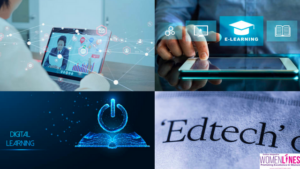Web3 Challenges: Regulations, Tech, and Privacy
The world of education stands on the cusp of a transformative revolution, with Web3 technologies leading the charge. Web3, often hailed as the decentralized web, seeks to redefine the way we access, share, and validate information. This paradigm shift holds the promise of enhanced accessibility, security, and transparency in education. In this essay, we explore the potential impact of Web3 on learners, educators, and the broader educational landscape.
Empowering Learners through Decentralization
Web3 introduces a decentralized learning ecosystem that empowers learners in multiple dimensions. One of the pivotal changes is the concept of ownership of credentials. In traditional education, centralized institutions issue and verify credentials. However, Web3 brings about a shift, allowing learners to own their academic achievements through blockchain-based certificates and badges. These credentials are tamper-proof, verifiable, and transferable, providing learners with a direct means to showcase their skills without intermediaries.
Furthermore, Web3’s global accessibility breaks down geographical barriers, offering education to learners worldwide. Decentralized platforms create opportunities for individuals in remote or underserved areas to access quality educational resources. This inclusivity is a significant step in democratizing education.
Microlearning and Tokenized Incentives add another layer to Web3-enabled education. Learners can engage in bite-sized educational content and earn tokens or cryptocurrency rewards for course completion or content creation. This not only incentivizes continuous learning but also fosters a sense of community and collaboration within the educational sphere.
Peer-to-peer collaboration is facilitated through decentralized applications (DApps) and social learning networks. This allows learners to engage in collaborative projects, share resources, and collectively build a repository of knowledge without relying on centralized platforms. The emphasis on collaboration reflects a shift towards a more interactive and dynamic educational experience.
The immutability of educational records stored on the blockchain addresses concerns related to fraud, ensuring the integrity of academic achievements. This feature acts as a safeguard against diploma mills and fake qualifications, enhancing the overall value of education.
Empowering Educators in a Decentralized Landscape
Web3 also empowers educators in various ways. Educators can retain ownership of their educational content and directly monetize it through blockchain-based platforms, providing an alternative income stream and eliminating the need for intermediaries.
Decentralized teaching marketplaces enable educators to offer courses globally, reaching a diverse audience. These marketplaces often incorporate flexible pricing models, allowing educators to adapt to the specific needs of their learners. This not only expands the reach of educators but also contributes to the globalization of educational content.
Smart contracts, a key component of Web3, can automate assessment processes, providing immediate feedback to learners. This reduces the administrative burden on educators, enabling them to focus on personalized instruction and fostering a more efficient educational environment.
Challenges and Considerations
Despite the immense potential, the adoption of Web3 in education faces challenges. The evolving regulatory landscape for cryptocurrencies and blockchain technology requires clarity and adaptability to ensure smooth integration. Addressing the digital divide is essential to provide equitable access, as not all learners have access to the technology required for Web3 education. Moreover, protecting learner data and ensuring privacy in a Web3 ecosystem poses a complex challenge that demands careful consideration.
In Conclusion, Web3 has the potential to revolutionize education by providing learners with ownership, access, and collaboration opportunities previously unimaginable. It empowers educators to innovate and take control of their content and income. While challenges exist, the benefits of a decentralized education system leveraging Web3 technologies are immense. As the Web3 ecosystem evolves, collaboration among education stakeholders is crucial to harness its potential and shape a decentralized, accessible, and learner-centric educational experience for generations to come.

I am Prema Chuttoo.
SAP Technical Consultant/Company Director/author
Belgium
Register to get started!
Also Read, Revolutionize Your Skin: Top 5 Collagen-Boosting Foods
Follow Womenlines on Social Media













 Subscribe to Womenlines, the top-ranked online magazine for business, health, and leadership insights. Unleash your true potential with captivating content, and witness our expert content marketing services skyrocket your brand’s online visibility worldwide. Join us on this transformative journey to becoming your best self!
Subscribe to Womenlines, the top-ranked online magazine for business, health, and leadership insights. Unleash your true potential with captivating content, and witness our expert content marketing services skyrocket your brand’s online visibility worldwide. Join us on this transformative journey to becoming your best self! 






